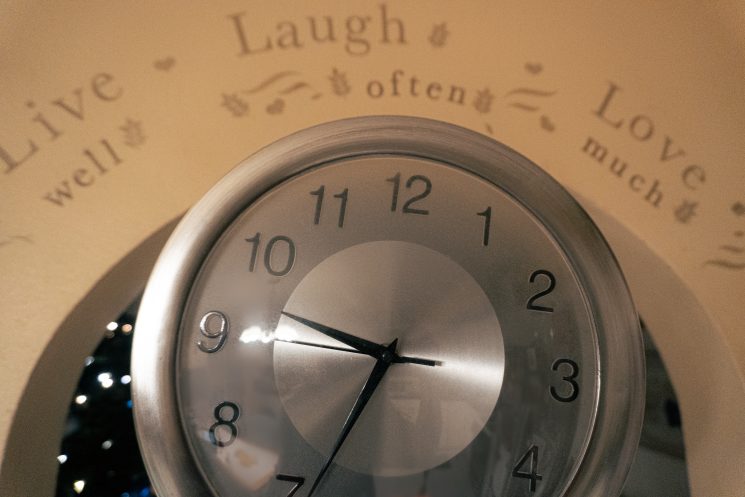
By Lauren Hyland
In a world where every second of your attention is under siege, media makers stand ready to grab your focus. The digital age has enabled creators of all types to put forth an overwhelming tide of content, each piece clawing and clamoring to be worth your time. But the big question is: Is any of it actually worthy of your attention, or are you just being blindsided by distraction?
Is what they create worth your attention?
Marketers, writers, influencers and creators of all kinds craft with intention. They believe that what they’ve made is worth your attention, and maybe it is—after all, some creations aim to uplift, educate or inspire. There are films that explore the depths of human experience, books that challenge us to think deeper and even social media posts that radiate positivity. But with so much noise, the value of what we consume can feel increasingly clouded.
Sometimes, content isn’t created with care, depth or genuine insight but merely to keep us scrolling. An endless feed of news updates, gimmicky ads and repetitive trends can drain our focus without truly rewarding us in return. So, with all that’s out there, how do we know what is worth our time?
When it’s not worth your time
Not all content is created equal. Much of what we see online and in the media is created to capture if not outright manipulate, our attention. There’s a lot out there that’s shallow or even thoughtless, produced simply to fit an algorithm or to chase the latest trend. An example of this includes day-in-the-life videos of creators who have more than you, reminding you they have more than you, with subtle brags sprinkled throughout a simple walk through their day. Another example is the many clickbait titles that flood the media, disguising the boring, deceptive video that accompanies them. While these creations might entertain in the short term they only satisfy a short-term desire without bettering our long-term life. Spending hours on empty content can leave us feeling drained, less focused and oddly empty.
The question then becomes, why would we continue to engage in something that doesn’t fill us up? Often, it’s because we’ve been conditioned to believe that more is better, that being busy is important or that we’re simply missing out if we’re not consuming everything on offer. But what if the act of creation held more value than anything we could scroll through or binge-watch?
Creating matters more
When we create, we aren’t just absorbing—we’re contributing. Creation allows us to express who we are, what we think and what we value. While consumption can be a passive act, creation is active, demanding focus and care. Whether it’s writing, painting, cooking or building something from scratch, creating allows us to dig into what matters most to us. It’s an investment in self-discovery and a path to long-term fulfillment.
One, Austin Kleon, a New York Times bestselling author, is passionate about creative expression in today’s world. Exemplified by his five published books, Kleon navigates and provides advice on creativity in the digital age.
“There’s two things: There’s the making and there’s the sharing. So the most important thing is to always be making. The most important thing is to be in love with the doing, with the verbs, with the actual acts—the practice.” Said Kleon, in a podcast diving into the habits of great artists.
Creation shall not only be encouraged but shared. Inspire others with your work. Foster an environment of collaboration and mutual growth by sharing what you’ve made. When you share your creations, you open the door for connection, feedback and inspiration. Your work might spark ideas in someone else or motivate them to embark on their own creative journey. Sharing isn’t about seeking validation but contributing to a collective archive of ideas and creativity that has the power to uplift and unite.
Personal benefits of creation over consumption
Focusing on creation over consumption can improve focus, patience and satisfaction. When we actively create, we practice skills, develop patience and make room for genuine growth. As you build something unique, you experience a different kind of fulfillment, a joy in seeing the product of your effort come to life. Each project or creative endeavor encourages problem-solving, self-reliance and confidence—qualities that, unlike fleeting trends, stay with you long after the moment has passed.
Additionally, creating encourages mindfulness. When you pour yourself into making something, you’re more aware of your feelings and intentions. You’re less likely to feel overwhelmed and more likely to feel fulfilled by your time. Consuming less can also help foster gratitude, allowing you to appreciate the quality of what you experience rather than just the quantity.
Finding balance
None of this means you must renounce all media consumption to devote every moment to creation. The balance lies in choosing wisely, and consuming content that uplifts, challenges or inspires you. Curate what you consume so it adds to your life rather than detracts from it. Select podcasts, movies and books that teach you, make you laugh or spark creativity. This way, even your consumption becomes a tool for growth.
Consider setting limits for yourself. Spend as much time on creating as you do consuming, or better yet, more. Notice what media leaves you feeling inspired or motivated, and seek more of it while shedding the things that drain your energy.
Ultimately, only you can decide what’s worthy of your time. When you prioritize creating over consuming, you’re not just adding to the world; you’re shaping a life filled with meaning and intentional purpose. The time you spend creating is a gift, one that leaves a legacy long after the latest trend fades.





